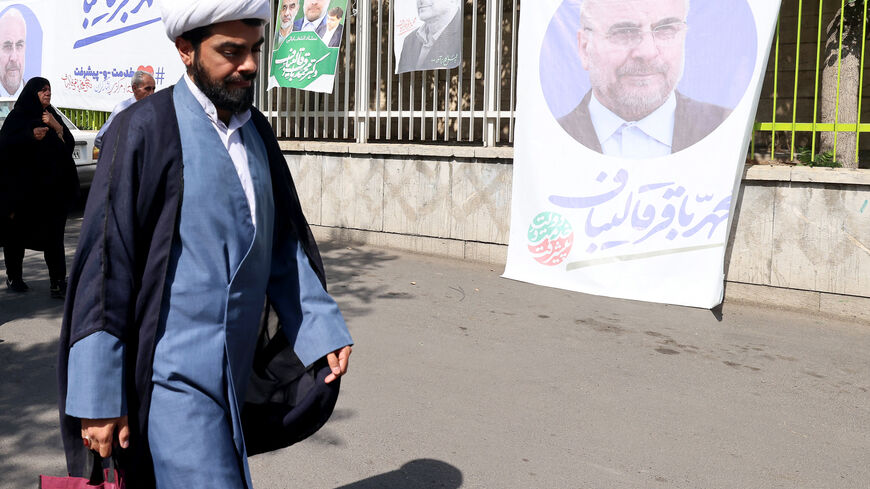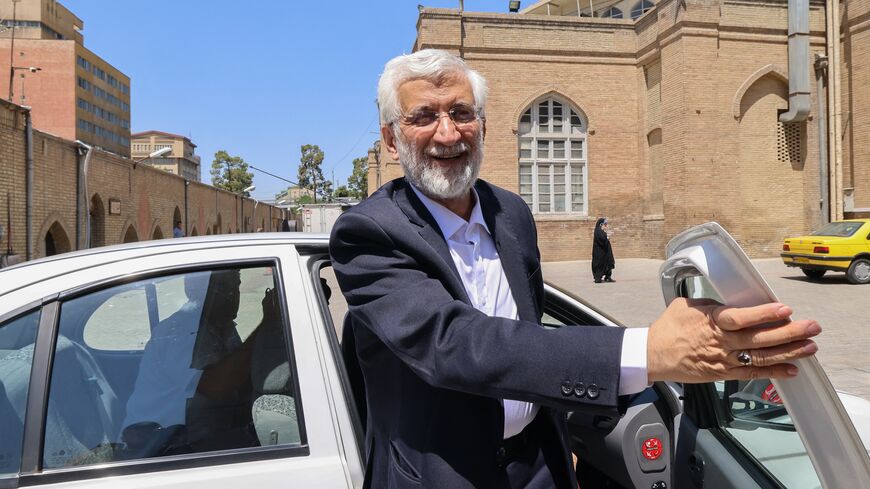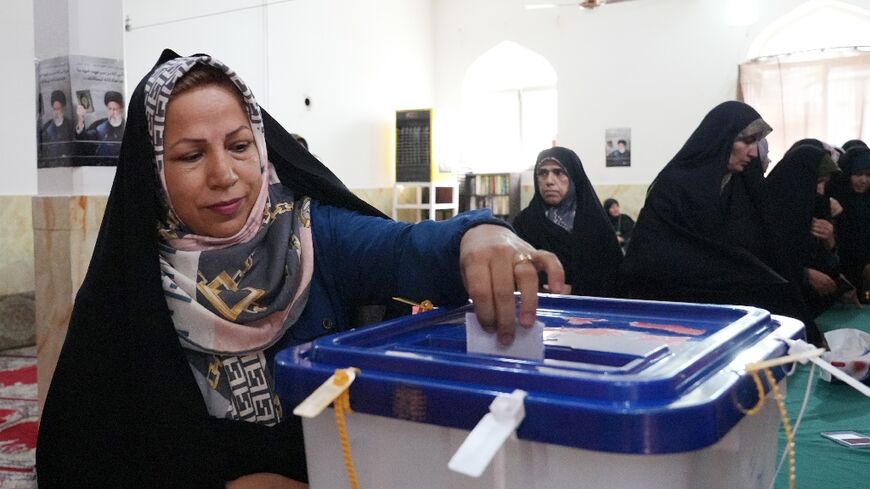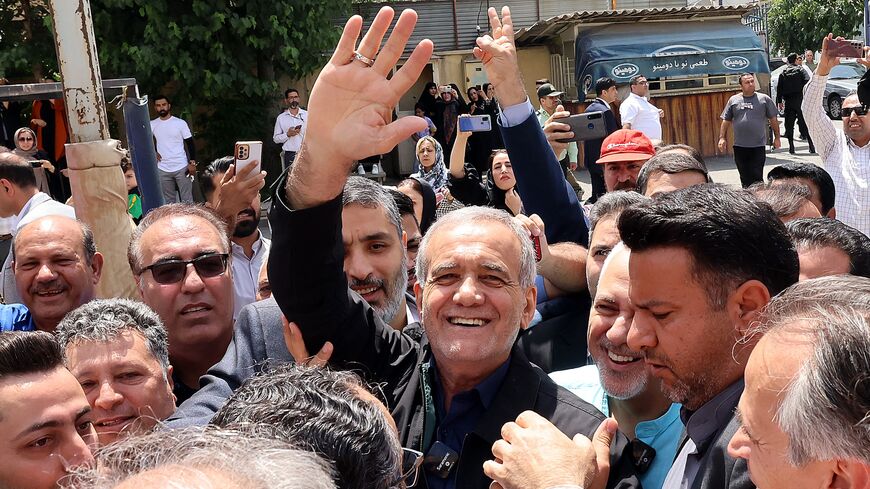Polls close in Iran's election with vote marred by apathy, discontent
The four candidates, who are all approved by Ayatollah Ali Khamenei, are running at a time of economic crunch and discontent with the government inside Iran.

Polls closed late on Friday in Iran's snap election to decide who out of four candidates will succeed the late President Ebrahim Raisi after his death in a helicopter crash last month.
Iranian election authorities said that around 58,000 voting stations were set up across the country, with as many as 61,452,321 people eligible to vote. The authorities extended the voting time throughout the day until midnight local time (4:30 p.m. ET), the semi-official Mehr News Agency reported.
Supreme Leader Ayatollah Ali Khamenei urged Iranians to vote, saying that “high turnout is a definite necessity” after casting his ballot, the official Islamic Republic News Agency reported.
Mehr reported a “robust turnout,” though it did not provide specific numbers. Counting will begin after midnight, according to the outlet.
Why it matters: Voters are choosing between the following candidates: former Supreme National Security Council secretary Saeed Jalili, parliament speaker Mohammad Bagher Ghalibaf, member of parliament Masoud Pezeshkian, and cleric Mostafa Pourmohammadi. Interim President Mohammad Mokhber is not running.
The four candidates were all approved by the Guardian Council, a body controlled by Khamenei. Few were disqualified including former President Mahmoud Ahmedinijad. The president runs the country day-to-day in the Islamic Republic system, though Khamenei holds ultimate authority.
Jalili and Ghalibaf are the two remaining hard-liners after Tehran Mayor Alireza Zakani and Vice President Amir-Hossein Ghazizadeh Hashemi dropped out earlier this week. Pezeshkian is the lone Reformist running. Pourmohammadi, who is not expected to perform well, is a conservative who has criticized the government recently.
Jalili and Pezeshkian were atop some recent polls. A June 22 poll from the Netherlands-based Group for Analyzing and Measuring Attitudes in Iran noted Pezeshkian with 37.7% of the vote and Jalili with 29.4% among people who plan on voting. In a June 20 poll, the government-affiliated Iranian Students Polling Agency showed Jalili with 26.2% support, Pezeshkian with 19.8% and Ghalibaf with 19%.
In the event that no candidate receives more than 50% of the vote, a run-off election will be held between the two candidates with the most votes.
Large swaths of Iranians are expected to abstain from voting amid widespread discontent with the government. More than 65% of respondents in the Group for Analyzing and Measuring Attitudes in Iran’s poll said they will not vote in the election, with a majority citing opposition to the overall Islamic Republic system as their reason.
The apathy follows a wave of protests that began in Iran in September of 2022 after the death of Mahsa Amini. The 22-year-old woman was arrested by religious police for allegedly not wearing her hijab properly and later died amid accusations that police severely beat her. Wearing the Islamic head covering is required of women in Iran.
The hijab law was an election issue. In the June 21 presidential debate, Pourmohammadi pledged to rescind the law, according to the London-based Iran International news station. BBC Farsi posted a clip on Wednesday of Jalili campaign official Maryam Ashrafi Godarzi saying that women who do not wear the hijab have themselves to blame if they are assaulted.
Know more: Iranians living overseas are able to vote in the election. The Islamic Republic News Agency (IRNA) reported voting in the United Kingdom, Iraq and Oman on Friday. Lebanon’s official National News Agency reported that Iranians voted in the election via the embassy in Beirut.
Voice of America reported earlier this month that Iranians in the United States would be able to vote, as they were in the 2017 and 2021 elections.
Iran International reported that activists confronted voters at a protest outside the Iranian embassy in London. Two of the voters were arrested by police amid the tensions, according to the outlet.
IRNA reported that “some anti-Revolution elements” were arrested in the British city of Birmingham after allegedly attempting to disrupt voting.







